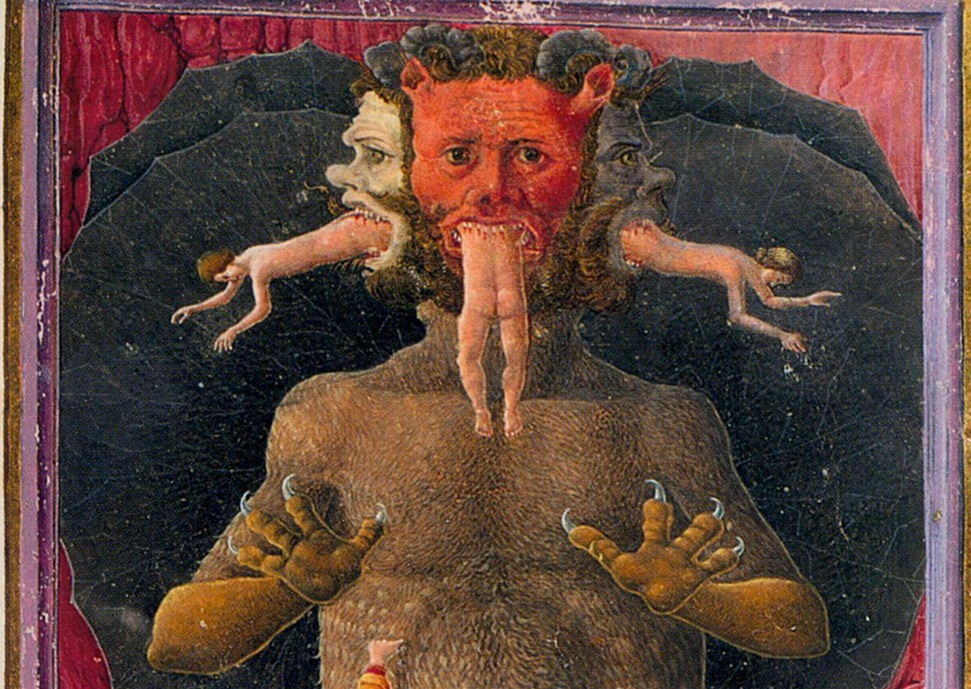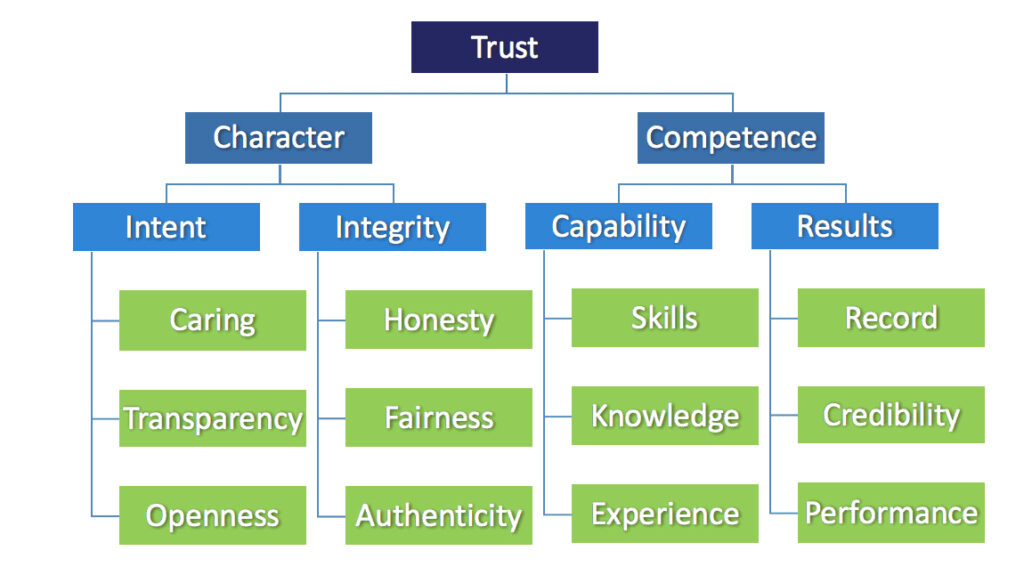“You can’t always trust your woman
“Trust,” Ronnie Van Zant
Well you can’t always trust your best friend
And beware of the ones that you need y’all
‘Cause they might be the ones that do you in.”
As Dante and Virgil make their way to the lowest region of Hell, the Fourth Ring of the Ninth Circle called Judecca (after Judas), they see the immense shape of Lucifer and the massive Chains of Judecca that keep him imprisoned in the frozen waste.
Dante has come to the end of his terrifying tour through the hierarchy of sins in the Inferno. In Hell, the greater degree an act committed against the love due to your fellow man and God, the more intense the punishment.
The souls condemned here are the most evil of all sinners – the traitors to their benefactors. The unrelenting descriptions and the specific torments connected to human evil culminate with those who commit fraud, and with being a traitor the most offensive violation.
Dante divides fraud into two categories, ordinary fraud which breaks the natural bonds of trust that should exist between men, and fraud against a benefactor which is the worst of all because it is a betrayal of trust that is purely voluntary and, therefore, a type of trust that most closely resembles the love God has for us.

We see here Brutus and Cassius who betrayed Caesar and, of course, in the very grips of Satan himself, Judas Iscariot, who betrayed the ultimate benefactor, the Man God Jesus Christ.
Dante’s insight into why betrayal merits being judged as the most evil of acts compared to any other heinous behavior or perversion is because, beyond the visceral pain and complex emotions it triggers, betrayal shatters our trust in others, it scandalizes others who see it happen, and whether done out of malice or for power, lust or for greed, the effects remain deeply personal, the consequences and collateral damage ripple through time.
In our own lives, we have no doubt been betrayed by others. It is hard to let go and forgive, and many will go to their graves with these wounds still raw.
Within dissident circles, the names and deeds of traitors and the lives and families they’ve hurt or ruined are well known.
In the South, there can never be recompense or healing from the monstrous betrayal during and since the War.
The current betrayal of Christians in general and Whites in particular beggars belief in the audacity and wickedness. We watch (seemingly) helpless at the premeditated destruction of the West from the importation of incompatible races, the inversion of right and wrong with endless transgressive acts allowed or committed by those entrusted to protect and serve. It calls to mind another quote of betrayal attributed to Dante, though not actually in the Inferno. The hottest places in Hell are reserved for those who, in times of great moral crisis, maintain their neutrality.
All these acts of fraud and betrayal by traitors offend our sensibilities and upset our soul because they are, in fact, the most sinful acts possible.
Defending Against The Traitor and His Fraud
Let’s set aside the moral weight of all this and look at what it actually means to trust and be trusted.
Establishing and knowing how to test for trust is key to protecting ourselves from the traitors in our midst but also, more positively, how to raise our children, mentor the young, and hold one another accountable in order to be of dependable value to others.
Leaders in business, military, and any well-functioning organization spend an enormous amount of time and resources to create and maintain trust. Because it is of foundational importance, they also protect things that ding against it with intensity.
A quick way to see if the situation you’re in is a trustworthy one is to ask:
- How comfortable do I feel allowing myself to be vulnerable?
- Am I afraid of creating conflict by speaking openly and honestly?
- Am I afraid of reprisals?
- If I share personal thoughts and feelings, am I worried I will be mocked, belittled, or dismissed?
There are of course more, but if you can’t positively answer these questions in your one-on-one conversation, in a relationship, or a group situation (including your workplace), beware.
Here’s how low-trust dynamics play out and the cascading dysfunctional effects. We all no doubt experienced these:
- You’re not able to be genuinely open with others about their mistakes and weaknesses.
- Consequently, there is a fear of conflict which means being incapable of having unfiltered passionate debate about ideas but instead carry on with guarded comments and muted discussions.
- Having no healthy conflict now breeds a lack of commitment and feigned agreement for weak or bad ideas with silent detractors secretly hoping others fail…and eagerly finding others to commiserate with. These cliques are the seeds of factions and the soil for the traitor.
- Now comes the avoidance of accountability with no clear plan of action, no desire or ability to call people out for bad behavior, often with the worst being rewarded.
- Whether in a family, a small group or a large organization, at best this all ends with no one really caring about results and members being quick to be on record to say things like, “I never thought it was a good idea anyway.” At worse, someone is set-up to take a fall, to be blamed personally, and thus betrayed by others he thought were on his side.
What we should expect and enforce are the opposite of these points: we can engage in unfiltered conflict around ideas and after vigorous debate, truly come together and commit to decisions and plans of action where we hold one another accountable for delivering.
Making It Personal
The old Stephen Covey trust diagram is as good as anything I’ve ever encountered for not only evaluating your relationships and social environments, but it is an excellent framework to examine yourself and see clearly areas that need improvement. Print out a version of this and tape it to your office wall and the refrigerator.

Whether around the dinner table or a conference table, these simple hierarchical blocks can be used to openly and honestly discuss profoundly deep and important issues. Bringing topics like character, competence, intent, and integrity regularly into our online forums will immediately help determine if someone lacks character or simply hasn’t yet earned the group’s trust because there isn’t yet a record or credibility to prove competence.
We spend an enormous amount of time talking about current events and disasters but too often fail to really transform the conversation into something that benefits us. By examining how the root cause of most every problem of consequence is the result of broken trust and betrayal, we miss an opportunity to learn how to make sure it doesn’t happen to us…yet again.
Danger and sin lurk in the darkness and it is the light of open discussion and accountability to one another that will fortify us personally, and as a movement.

‘Cause down in Alabama, you can run, but you sure can’t hide.





